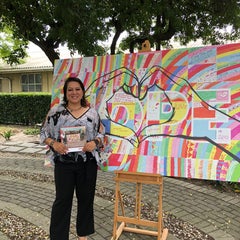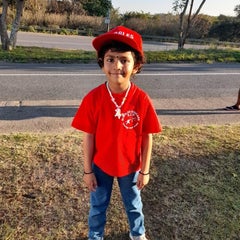Black South Africans Disproportionately Affected by Blood Cancer Costs
To assist blood cancer patients DKMS Africa has embarked on a fundraising campaign to cover the donor-related costs associated with blood stem cell transplants through the Bell of Hope campaign.
South Africa is the most unequal country in the world[i]. Nowhere is this more evident than in the health system where approximately 71% of the population relies on the state and only 27% is able to afford the cost of private care[ii].
“Studies show that 72.9% of White South Africans have medical aid, compared to 9.9% of Black citizens[iii]. What’s more, White people are the least likely to use public healthcare compared to other races, while Black individuals are the predominant users[iv]. This comes down to affordability[v], especially with the majority of White people earning three times more on average than their Black compatriots and unemployment rates being almost five times higher amongst the latter[vi],” says Nabiella De Beer Communications Manager at DKMS Africa.
She explains that while patients who receive social pensions, and disability grants, and who are formally unemployed may receive some hospital health services free of charge, the bulk of state patients are partially subsidised depending on their income. “In-patient chemotherapy treatment starts at around R3,000 per day and radiation reaching up to R27,000 per session – part of which may come from the patient[vii].”
“The cost is even higher for those diagnosed with blood cancers - whose best chance for a cure is a blood stem cell donation from a matching donor - as transplants cost between R1 million and R1.5 million. Again, this is covered by the state and in some instances, patients may need to contribute,” points out De Beer.
“The state currently does not cover the donor-related costs for stem cell transplants from an unrelated donor which ranges from R120 000 – R1 million,” she adds. “
“Complicating matters is the fact that only 0,04% of South Africans are registered as blood stem cell donors, 10% of whom are Black, so the potential pool of matching donors from within the country is minuscule. What this means is patients often need to look abroad for donors whose tissue characteristics are a 100% match,” notes De Beer.
For Gugu (also known as Juliet), a 38-year-old leukaemia patient from KwaZulu-Natal, this was her last hope. After the failure to secure a donor match, she, unfortunately, passed away, leaving her younger sister, Cebo, to raise her two children aged two and 15, in addition to her own two sons and her late brother’s daughter. “We were all devastated when she learnt that the donors could no longer assist,” shares Cebo.
Gugu was the sole breadwinner, but now the family’s financial pressures have all been put on 28-year-old Cebo, a currently unemployed nursing graduate. “With Gugu being in the hospital from November last year until August this year, I have battled to pay the bills. Raising five kids on my own has also been extremely challenging. I need to get a job; I’ve been applying but nothing has materialised.”
“Gugu’s wish was for people to learn about the different types of cancer. Having this knowledge early on can help you in the future. Unfortunately, we tend to wait until it’s too late to educate ourselves. I knew nothing about blood stem cell donation until Gugu got sick, but perhaps if we had known about it sooner, we could have found a donor and she would still be here with us, watching her children grow up,” says Cebo.
“We challenge South Africans to help us to ring the bell for five transplant patients by donating to this initiative. Together, we can help to relieve some of the financial burdens on these patients,” concludes De Beer.
To donate to the Bell of Hope fundraising campaign, go to https://www.dkms-africa.org/get-involved/campaigns/bell-of-hope. To register as a potential donor, please sign up at: https://www.dkms-africa.org/register-now. For more information, contact DKMS Africa on 0800 12 10 82.
[i]https://www.worldbank.org/en/news/press-release/2022/03/09/new-world-bank-report-assesses-sources-of-inequality-in-five-countries-in-southern-africa#:~:text=South%20Africa%2C%20the%20largest%20country,World%20Bank's%20global%20poverty%20database.
[ii]https://www.wits.ac.za/news/latest-news/opinion/2021/2021-07/healthcare-in-south-africa-how-inequity-is-contributing-to-inefficiency.html
[iii] https://www.ncbi.nlm.nih.gov/pmc/articles/PMC7400579/
[iv] https://www.ncbi.nlm.nih.gov/pmc/articles/PMC7400579/
[v] https://www.ncbi.nlm.nih.gov/pmc/articles/PMC7400579/
[vi] https://www.statssa.gov.za/publications/Report-03-10-19/Report-03-10-192017.pdf
[vii] https://www.health.gov.za/uniform-patient-fee-schedule/


